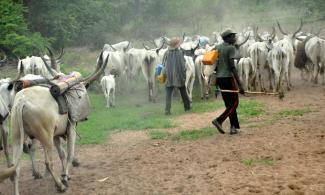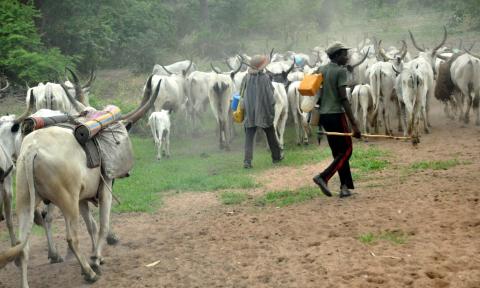
Apart from ejecting the herdsmen, the governor also banned underage grazing, night grazing, and movement of cattle within the cities and on highways.
The Ondo State Security Network Agency, popularly known as Amotekun Corps, has said some herdsmen staying in the state’s forest reserves have peacefully opted to move out of the state.
Speaking to SaharaReporters, the commander of the outfit, Chief Adetunji Adeleye, said herders who cannot cope with the terms and conditions of the state government have decided to leave.

Rotimi Akeredolu, governor of the state, had issued a seven-day quit notice to the herdsmen operating illegally in the state’s forest reserves.
Apart from ejecting the herdsmen, the governor also banned underage grazing, night grazing, and movement of cattle within the cities and on highways.
The governor had said, "Today, we have taken major steps at addressing the root cause of kidnapping, in particular, and other nefarious activities detailed and documented in security reports, the press, and debriefings from victims of kidnap cases in Ondo State.
"As the chief law and security officer of the state, it is my constitutional obligation to do everything lawful to protect the lives and property of all residents of the state. In light of the foregoing, the following orders are hereby issued: All forest reserves in the state are to be vacated by herdsmen within the next seven days with effect from today, Monday, January 18, 2021."
The issue generated an uproar and after a meeting with different stakeholders, Akeredolu asked herdsmen to register with the government so that they can operate unhindered in the forest reserves.
Speaking on Friday, Adeleye said though the enforcement of the government order was still ongoing, the security outfit has yet to make any arrest.
“We only enlightened them on the constitution of the state and they opted to vacate the state. So, we gave them a free way, we met them at their various locations and some of them came to us directly asking for guidelines for registration.
“They felt that they preferred to leave the state rather than register, so we allowed them. Our men escorted them to the boundaries of the state with others. We have to monitor their movements out of the state so that they would not destroy farms on their way out.”